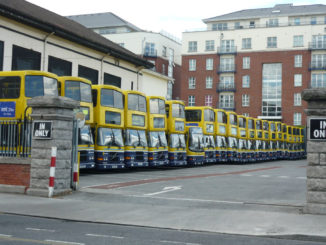
Why risk a commercial flop, when a critical failure is much more profitable? This seems to have been the attitude taken by Universal Pictures when the decision was made to make the cinematic release of Fifty Shades of Grey into a softcore, watered down replica of the book.
If you were hoping for something akin to Blue is the Warmest Colour, a story of sexual awakening and burgeoning maturity, no doubt you were disappointed with the lacklustre display of chemical attraction between Anastasia Steele and Christian Grey.
With the film grossing over $300m and counting, despite only garnering a rating of 4.1/10 on IMDB, it’s clear that the film industry is now more than ever just that; an industry.
Controversy was Fifty Shades’ bread and butter. It was the prime mover that made E.L. James’ books into a worldwide phenomenon. Blockbuster cinema, unlike literature, is too careful to be sexually explicit or daring, especially in this case as the action is dry, the dialogue blocky and the focus a little bit confusing.
The book, to its credit, was rendered in a first person narrative from the point of view of Anastasia. That relativity is lost on the big screen. Without her stream-of-consciousness you can’t tell whether she’s afraid, enjoying herself or maybe just another female sounding wall for an enigmatic and multi-faceted male lead.
That’s not to say that Dakota Johnson did a bad job acting the part. It’s Christian Grey, played by Jamie Dornan, who is so emotionally shackled that he is almost incapable of saying anything unless it is a witty double entendre.
The fantasy of the whole thing is a little hard to stomach. The plot surrounds Grey’s characteristics and affluence, which are unbelievable and extreme. Power and love are entwined like the dual epiphany of the sexes, while a human touch or a bit of realism is lost beneath the swell of luxury.
Literary adaptations, on their day, can be absolutely brilliant. On the one hand there have been drastic interpretations, such as The Big Lebowski or There Will be Blood, but also faithful duplicates like Catch-22 or One Flew Over the Cuckoo’s Nest.
Fifty Shades gave up the right to be either when it became so popular in its original literary form. It was a cash-cow primed for milking, dressed up as the film of the year. Hollywood, in all its exploitative glory is ruining art and stifling expression, and in the name of what? Money! It’s a crime.
Bryan Grogan




Leave a Reply